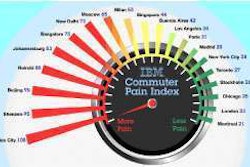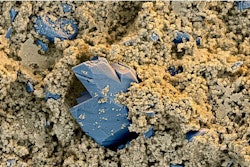Based on the U.S. Department of Commerce‘s most recent Steel Import Monitoring and Analysis (SIMA) data, the American Iron and Steel Institute (AISI) reported that steel import permit applications for the month of September totaled 2,221,000 net tons (NT). This was an 11 percent decrease from the 2,481,000 permit tons recorded in August and a 9 percent decrease from the August preliminary imports total of 2,440,000 NT.
Import permit tonnage for finished steel in September was 1,659,000 NT, down 9 percent from the preliminary imports total of 1,813,000 NT in August.
Year-to date (YTD) 2011 total and finished steel import permit tons would annualize at 29,236,000 NT and 22,212,000 NT, up 22 percent and 18 percent, respectively, vs. the 23,929,000 NT and 18,857,000 NT imported in 2010. The estimated finished steel import market share in September was 20 percent and is 22 percent YTD.
In September, the largest finished steel import permit applications for offshore countries were for Korea (199,000 NT, down 0.3 percent from August), Japan (128,000 NT, up 40 percent), China (113,000 NT, down 5 percent), Germany (74,000 NT, down 9 percent) and The Netherlands (62,000 NT, up 138 percent).
Finished steel import permits for major products that registered large increases in September vs. the August preliminary include standard rail (up 104 percent), tin plate (up 29 percent) and sheets and strip all other metallic coated (up 54 percent).
“Given the significant underutilization of domestic steel capacity and the slowdown in the U.S. and global economic recovery, the substantial finished steel import market share of 22 percent remains of concern,” Thomas J. Gibson, AISI president & CEO, said in a written statement. “At a time when our economic recovery is at increased risk, AISI believes more needs to be done to combat currency manipulation and other unfair trade practices that enable producers in China and elsewhere to ship steel and other manufactured goods here at dumped and subsidized prices.”








